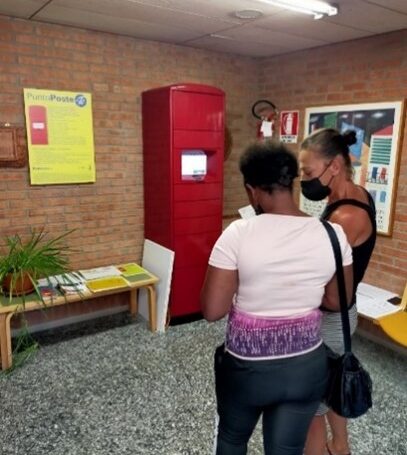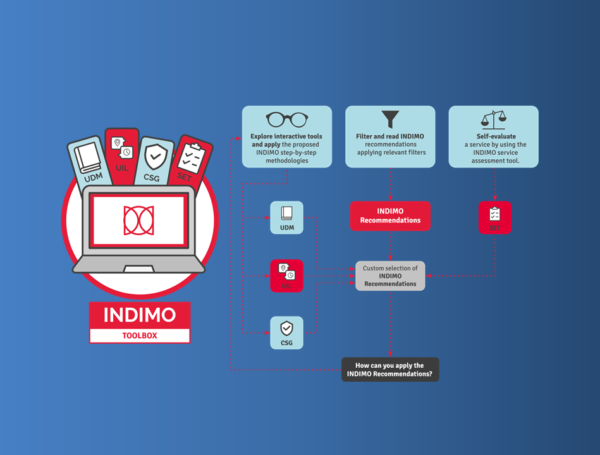By Cello Lorenzo, researcher at ITL and Emilia Romagna pilot site leader
The challenge of this technological service commonly implemented in densely populated areas is to engage target users such as elderly people, foreigners, and generally people with lower digital skills. Thus, the Universal Design Manual (UDM) recommendation was to “Organize training for users about the use of the service and possible risks, with the involvement of local stakeholders”. The implementation of these training sessions was scheduled right from the start and went into full capacity in July 2022 with three more every month after the summer break. ITL and Poste Italiane were in charge of conducting the training sessions on the last Thursday of the month.
The pilot counted with the mayor’s support to promote the locker and sessions in social challenges and on word of mouth, in addition to specific communication activities promoted by Poste Italiane, an essential strategy in small, rural areas. Between 10 and 15 citizens (users and potential users) participated in the first one-on-one training, mostly from the pilot target groups (i.e., older people and migrants). Participants welcome the practical support offered in the activation and use of the service, which was generally perceives to be accessible. Thus, elderly people and foreigners benefit from training sessions and physical support when accessing to the digital tools, a practice that can be transferred beyond rural areas and mobility sector (e.g., bank or medical services).






